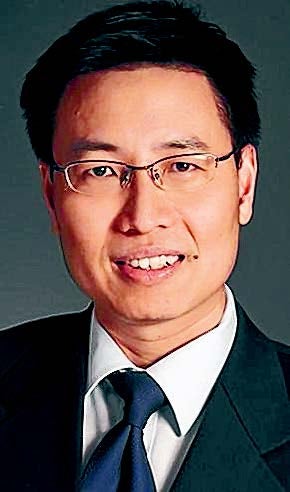
In a novel study, researchers will look into how effective traditional Chinese medicine (TCM) is in treating dry eye and whether this works well with Western medical treatments.
Physicians from the Singapore Eye Research Institute (SERI) and the Singapore Chung Hwa Medical Institution, a centre for TCM, will work together in the study funded by the Ministry of Health.
They hope to recruit 150 patients, who will be divided into three groups in equal numbers.
The first group will be treated with just eye drops, the second with acupuncture and eye drops, and the last group with herbal mixtures and eye drops.
They will be treated for four weeks and doctors at SERI will do tests before and after the treatment to evaluate the results.
Patients will be recruited at Chung Hwa and screened for lung and kidney deficiencies as TCM physicians believe that dry eye is a symptom of these conditions. The herbal remedies and acupuncture target dry eye, but also treat the deficiencies to some extent.
A pilot study by Chung Hwa last year has shown promise. Most of the 90 patients involved said their dry eye condition had improved after herbal treatment or a combination of herbal treatment and acupuncture.
“Though some scientific tests were done to ascertain these, more rigorous tests with SERI will help us ensure that TCM treatments indeed work well on dry eye,” said Chung Hwa head of ophthalmology Pat Lim.
Patients recruited for the new study will be 40 to 85 years old and have symptoms such as eye irritation, burning or watering.
Currently, there is no definitive cure for dry eye. Eye drops treat only the symptoms.
Some patients may need special eye drops which can be expensive and cause side effects, said SERI’s principal investigator for the study Louis Tong, also head of the ocular surface research group.
The Western medical treatment of dry eye may range from $30 to several hundred dollars a month. TCM herbal treatment and acupuncture could cost $40 and $50 a month respectively.
“Given that there is an increasing interest in holistic care in Singapore and the rise of scientifically trained TCM practitioners, a study like this is timely,” said Dr Tong. The study is expected to last one year starting next year and the results will be published in an academic journal, he said.
Contributed by

English
The-Straits-Times- SERI and Singapore Chung Hwa Medical Institution join hands to study dry eye.pdf

Chinese
Shin-Min-Daily-News-Exploring the efficacy of TCM in treating dry eye.pdf

Chinese
Lianhe Wanbao - Chinese and Western medicine collaborate to treat dry eyes.pdf














 Get it on Google Play
Get it on Google Play